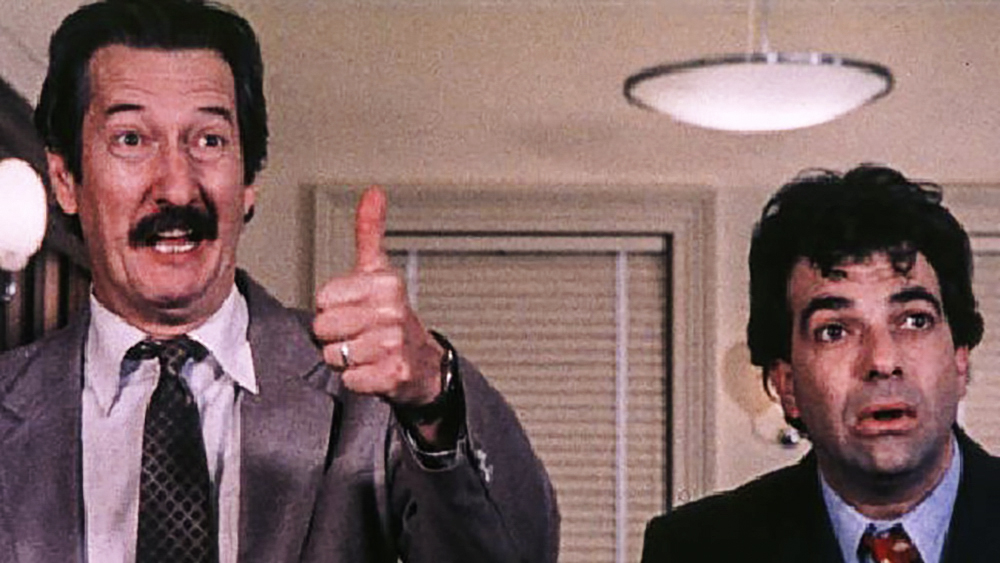The best book to read is the Vible, according to much of the population. But it’s not actually something you read. It’s something you feel, in your guts. It’s something you talk about with your friends at your local. It’s something you yell at the television when you are watching current affairs.
It’s the vibe, your honour, and its sacred book is the Vible.
The Vible is the summary of the moral teachings that people adhere to today. It’s a semi-organised, fairly contemporary, unwritten set of guidelines that allow you to feel like a decent human being. These teachings are not hard to follow; they often demand very little of us. In fact, they tend to devolve to a rather platitudinous level. Among the best-known commands of the Vible are: “Be nice to people, but online doesn’t count”, “Don’t judge people who are similar to you”, “Do judge people who disagree with you and the Vible”, “Give a small amount of money to charity and otherwise keep to yourself”, and most recently, “Love is love”.
The Vible’s teachings don’t require much humility, nor do they challenge your worldview.
The Vible’s teachings don’t require much humility, nor do they challenge your worldview. They don’t posit any sense of allegiance to a higher power or law; they assume that you already are that power. As one radio journalist said to me recently, “I tend to think capital-J Justice rests with us”. That’s the confidence that the Vible provides.
In an era of postmodern attitudes to truth, one of the surprises has been how few people are nihilists. Having accepted a relativistic view of knowledge—summarised by Vaclav Havel as “Everything is possible and almost nothing is certain”—only a handful of people have responded, “Oh well, I guess nothing matters so I’m going to be a passion-driven monster”. In fact, most people have gone with something like, “I may not know what is true, but I know what I morally like.” It’s the vibe. And we are the vibe-setters.
Many followers of the Vible actually think they are followers of the Bible, too
I suppose this could be endured, were it not for the fact that many followers of the Vible actually think they are followers of the Bible, too. They think that the views they preach are what Christianity ought to be. “If Jesus were alive today, this is what he would think,” summarises the approach. It’s a bold call for people who often don’t know their alpha from their omega.
The Bible is a large book, and actually a library of books. It’s not a quick read; parts of it are not an easy read. It really is the only place to go to find out what Jesus taught. It rewards patient attention, and a willingness to put the various sections of it together in a meaningful way, rather than simply dip in for a casual visit. But Vible-bashers don’t even make casual visits. Instead, they assume they already get it.
I was once part of a Bible reading group at university. A lovely middle-aged woman joined the group because she had been asked to take a Scripture class in a local high school. She hadn’t read the Bible before, so she thought she ought to find out what was in it before she stood up to teach it (wise). In our first ten minutes, we read part of the Paul’s letter to the Romans, covering such subjects as God’s wrath, futility, idol worship, sexual sin, hating God and seeking immortality, all in the space of a page.
We want to introduce people to the real Bible.
The shocked woman burst into tears and ran from the room. When someone rushed out after her in concern, she turned in anger to her follower and said “That’s not the St Paul I know! That’s appalling!”. The girl who had gone to her very gently suggested that, if she hadn’t read it before, how could she have known what to expect of Paul? “I expected gentle, soft and religious!” the woman spat out through clenched teeth. She never returned to the group, which was an immense shame, since she had made the first, difficult step of opening herself up to God’s word. I do hope she didn’t go on to teach Scripture in schools.
At the close of our bicentenary, the Bible Society is more aware than ever of the profound lack of understanding of the Bible in the general population and, sadly, within the church, too. We want to change this. We want to introduce people to the real Bible. We don’t want to leave people thinking that they know what God would say to them, even though they have never sought to find out. We don’t want to leave them dependent on their inner feelings, their pub talk with their mates, or what television morning show presenters and comedians suggest is true and good.
We want to introduce them to the Bible, the historical record of the faith, the testimony to Jesus, and the intriguing deposit of divine wisdom that has shaped so much of the world for 3500 years. The real stuff.
It can be an uncomfortable experience, if you have already built up a vibe about what is between the covers. But better to reject the actual message, than domesticate Christianity until it fits your own image. As C.S. Lewis wrote, what is the point of “tranquil veneration when we ought to be burning with shame, or struck dumb with terror, or carried out of ourselves by ravishing hopes and adorations”?
Greg Clarke is CEO of Bible Society Australia.
Email This Story
Why not send this to a friend?

